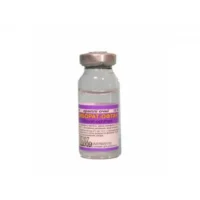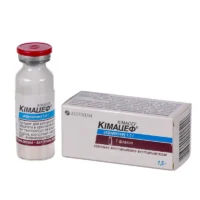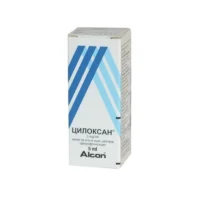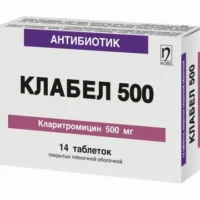Description
Teicoplanin-Farmex (Teicoplanin) Lyophilisate for Solution for Injection 400 mg
Ingredients:
- Teicoplanin lyophilisate for solution for injection 400 mg
- Solvent 3.2 ml
Dosage:
The recommended dosage of Teicoplanin-Farmex is determined by the severity of the infection. It is usually administered intravenously.
Indications:
Teicoplanin-Farmex is indicated for the treatment of serious infections caused by Gram-positive bacteria, including Staphylococcus aureus and Streptococcus pneumoniae.
Contraindications:
Do not use Teicoplanin-Farmex if you are allergic to teicoplanin or any other ingredients in the product.
Directions:
Follow the instructions provided by your healthcare provider for the correct administration of Teicoplanin-Farmex. Do not self-administer this medication.
Scientific Evidence:
Teicoplanin is a glycopeptide antibiotic with potent activity against various Gram-positive bacteria. Studies have shown its efficacy in treating infections such as endocarditis, septicemia, and bone and joint infections. Research has demonstrated the effectiveness of teicoplanin in treating methicillin-resistant Staphylococcus aureus (MRSA) infections.
Additional Information:
Teicoplanin-Farmex is well-tolerated by most patients, with common side effects including nausea, vomiting, and rash. It is important to complete the full course of treatment as prescribed by your healthcare provider.
Teicoplanin-Farmex works by inhibiting bacterial cell wall synthesis, leading to the death of the bacteria. It is considered a bactericidal antibiotic, making it effective against a wide range of Gram-positive pathogens.
Clinical trials have shown that Teicoplanin-Farmex is comparable in efficacy to other glycopeptide antibiotics such as vancomycin.





